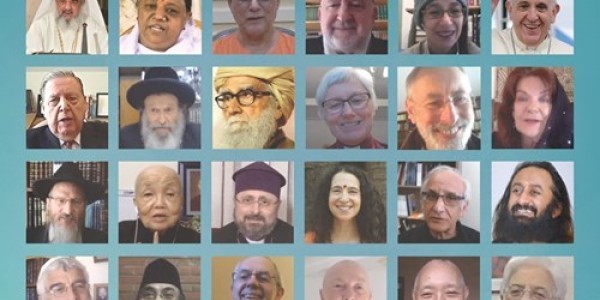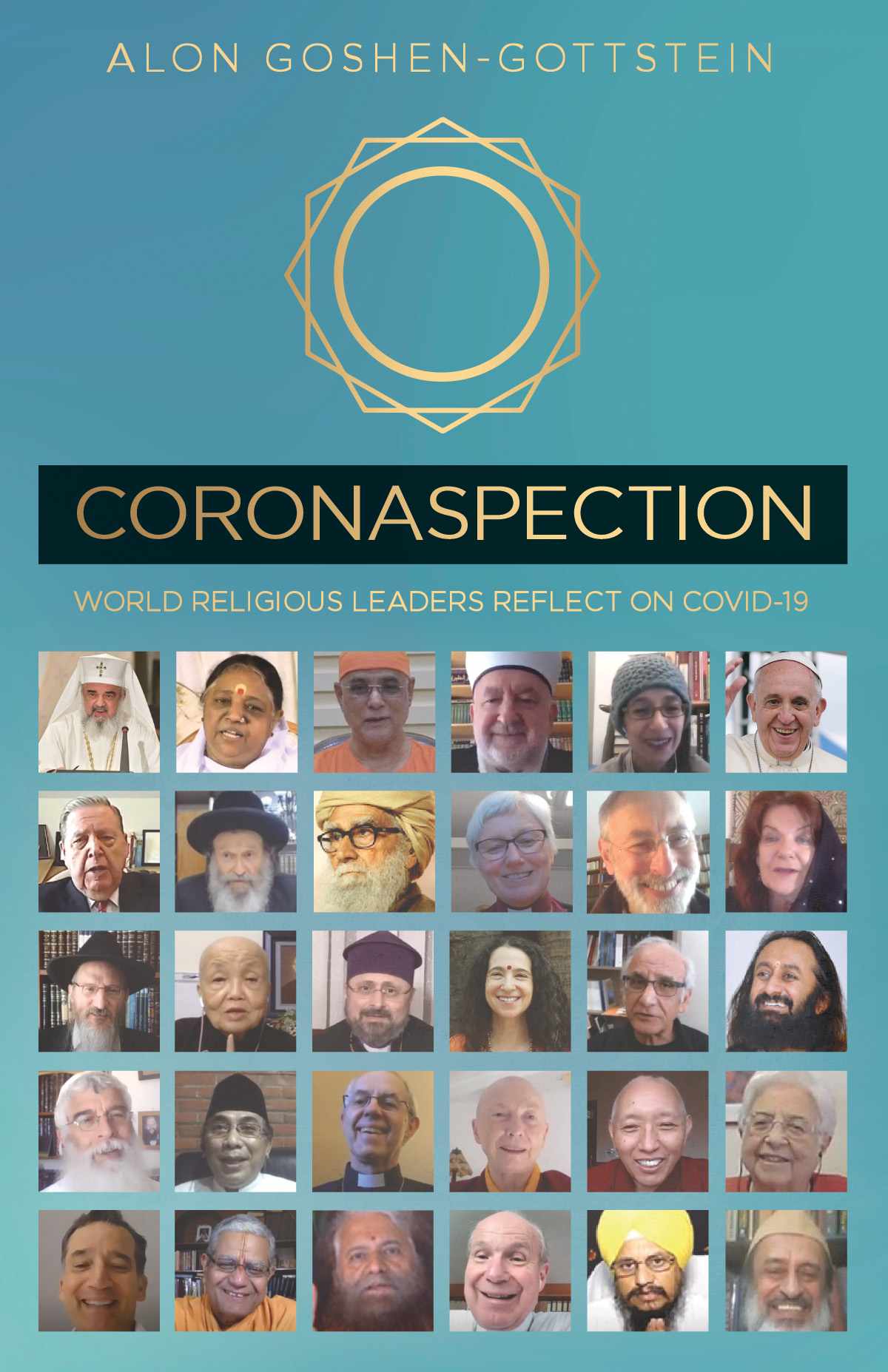Coronaspection: Addressing COVID-19 Through the Collaborative Wisdom of Religious Leaders
26/09/2020 | Na stronie od 25/09/2020

From: Elijah Interfaith Institute
This article is part of a series in which OECD experts and thought leaders — from around the world and all parts of society — address the COVID-19 crisis, discussing and developing solutions now and for the future. Aiming to foster the fruitful exchange of expertise and perspectives across fields to help us rise to this critical challenge, opinions expressed do not necessarily represent the views of the OECD.
Join the Forum Network for free using your email or social media accounts to share your own stories, ideas and expertise in the comments.
When the pandemic began, and after ensuring personal safety, anyone who could sought to make some contribution to how we cope with it. As a moderator of a high-level group of world religious leaders, known as The Elijah Board of World Religious Leaders, my way of serving was to try and provide comfort, vision and spiritual direction, drawing on the wisdom of religious leaders from all major faiths. This matured into a series of 40 video interviews and messages with religious leaders regarding the spiritual challenges brought about by the Coronavirus. Leaders from 15 countries and seven religions are featured on a dedicated website where their wisdom relating to some of the major challenges is featured: How to deal with fear and anxiety; how to cope with loss; how to use the time in lockdown and how to use solitude; how to maintain a sense of solidarity with others; what kind of world do they envision for the future.
The result is a storehouse of teaching and inspiration, delivered by some of the most prominent voices in religion. To name just a few: Pope Francis and the Archbishop of Canterbury in the Christian world; Grand Mufti Cerić of Bosnia; Chief Rabbi Berel Lazar of Russia; Sri Sri Ravi Shankar of India; and Karma Lekshe Tsomo, speaking for Buddhism.
The publication of this website has pushed me to consider in greater detail the place that religion has occupied during COVID-19, and what message it and its leaders have to offer the world. These analyses have come together in the recently published Coronaspection: World Religious Leaders Reflect on Covid-19.
Underlying the Coronaspection project is an understanding that spiritual challenges must be faced together. There is purpose in bringing together the wisdom of different religions under one roof, rather than having each community speak only to its members. This understanding has driven me over a quarter of a century through numerous projects and publications. But it is not evident to all. In fact, one of the projects I have undertaken, in the framework of a think tank run by the Elijah Interfaith Institute, is precisely to justify and account for practices of sharing wisdom across religions. COVID-19 provides us with an excellent opportunity to consider the need and benefits of tackling the spiritual challenges it poses through such a collaborative approach.
Also on the Forum Network: Resilience and Strength Shine Brightest: COVID-19 recovery offers the chance to create a more just, compassionate and sustainable economy for history’s largest generation of youth by Jayathma Wickramanayake, Secretary-General’s Envoy on Youth, United Nations
The COVID-19 pandemic is a unique moment in human history. There have been great challenges of all kinds. But there has never been a challenge that has faced all of humanity at one time, in such a global manner, affecting every nation and every place on the planet. The kind of connectivity that is possible in today’s world can deliver the best and the worst of humanity. It can be the basis for the spread of negativity, hatred and habits of bad living that sow conflict and division in humanity; or it can be the foundation for the practice of compassion and goodness, harbouring a sense of unity that brings together all forms of diversity. COVID-19 spread through globalisation, and the response to it invites us to employ a different kind of interconnectivity: one for good and for wisdom. COVID-19 presents us with an opportunity to affirm a global wisdom of interconnectedness that matches the reach of a virus that affects humanity as a whole, without making any distinctions among those infected.
A wise response requires collaboration and unity rather than competition and divisiveness. Just as we need global co-operation in practical ways to deal with the virus — so we also need to pool our resources to administer to the spiritual challenges posed by the new reality.
This approach is unfortunately far from common. Responses to the pandemic have often been divisive. As part of blame, building on existing tensions or simply acting out of self-interest, the responses to COVID-19 on the political front have often been divisive. Yet, a wise response, even in practical terms, requires collaboration and unity rather than competition and divisiveness. Just as we need global co-operation in practical ways to deal with the virus — to find vaccines, to share medicines and supplies, and so on — so we also need to pool our resources to administer to the spiritual challenges posed by the new reality. One of the key messages of Coronaspection has been the affirmation of the unity of humanity, and the need to recognise it and to act in its light.
One of the reasons why COVID-19 justifies — and even requires — a collective spiritual response is that the global situation is more about advancing spiritual processes than providing answers. The spiritual life is one of constant growth. Challenges urge us to grow. If humanity is challenged as a whole its wisdom, taken as a whole, is a means for inspiring everyone, of every nationality and every religion, to grow further. Such growth is made possible precisely through the testimony of the different leaders who give voice to the wisdom of their tradition. Setting wisdom alongside wisdom and life testimony alongside life testimony opens up a space for further reflection. It inspires the reader to think through for themselves — in dialogue with their traditions or others, in the fullness of commitment and the openness of spiritual curiosity — how to cope with the challenges of the moment, and how the global pandemic can advance their spiritual growth as well as that of humanity’s. If classical religious teaching, delivered in the context of a particular tradition, seeks to provide answers, Coronaspection recognises that this is a moment of opportunity and growth that calls for spiritual reflection. Such spiritual reflection is served by the juxtaposition of ideas, by enriching the conversation, by opening up to the global wisdom that emerges in response to the global crisis.
Taking this approach allows us to deliver religious wisdom in a way suitable for the times. For many, traditional religious structures have broken down. A quest for wisdom points to religious traditions, but without the exclusivity previously attached to them. Even for those who adhere fully to a particular tradition, like myself, there is a growing understanding that in an interreligious age we do well to be enriched by the voices of many traditions as well as our own. There will always be the need for the teaching delivered in the church, mosque and synagogue, but today’s world also needs it via online or video: by new means of communication to reach new forms of community. Every religion’s message needs to be acknowledged as a part of humanity’s common patrimony, and a source of inspiration for all. In this sense, then, COVID-19 invites individuals and traditions to grow by facing up to a common challenge as they approach it — jointly, side by side, connected, as it were — through the deep roots of the wisdom of their traditions.
Learn more about Dr. Alon Goshen-Gottstein's new book "Coronaspection: World Religious Leaders Reflect on COVID-19"
